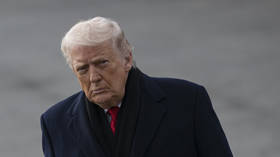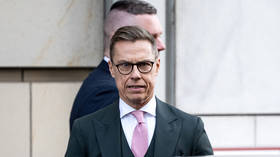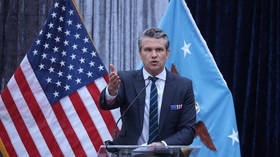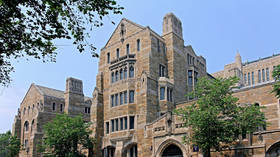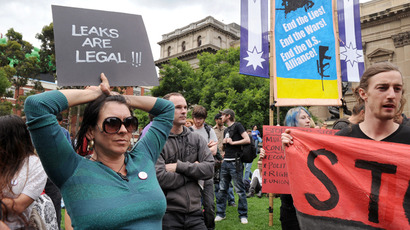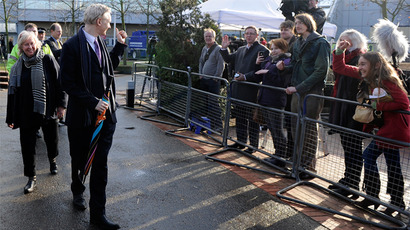Talks and diplomacy: UK mulls Assange solution with Ecuador
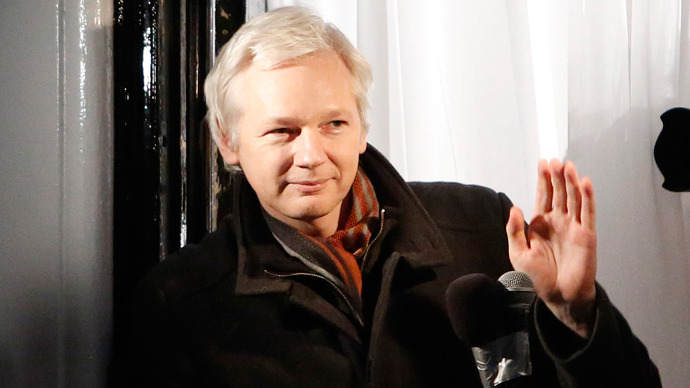
Britain is considering talks with Ecuador to discuss the future of WikiLeaks founder Julian Assange, according to the UK’s Foreign Office. This would be the first major step towards resolving a one-year diplomatic stand-off.
The Foreign Office announced that it is considering taking up Ecuador’s Foreign Minister Ricardo Patino’s request to set up a meeting with Britain's Foreign Secretary William Hague when Patino will visits London later in June.
"We're considering that request. We hope the visit will contribute to our joint commitment to finding a diplomatic solution to this issue," Reuters quoted a spokeswoman as saying.
Julian Assange has been inside of the Ecuadorian Embassy in London since June 2012 in order to avoid extradition to Sweden where he is wanted for questioning in regards to allegation of sex crimes, which he has denied.
He refuses to go to Sweden unless it guarantees that it won’t extradite him to the US, where Assange faces espionage charges over data released by WikiLeaks. According to his lawyers, if sent to the US he is likely to face trial and possibly even the death penalty over WikiLeaks' release of thousands of classified US diplomatic cables.
Ecuador has given Assange asylum and houses him in a small basement room in its London embassy. UK law enforcement keeps a close eye on the embassy, ready to arrest Assange should he leave the diplomatically-protected building.
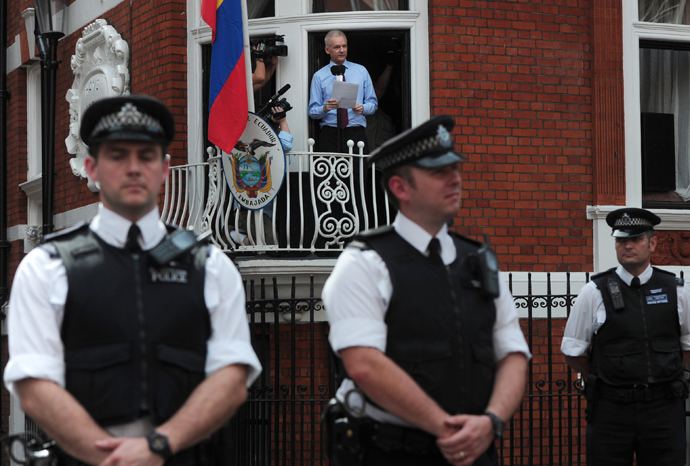
The cost of the surveillance, which is believed to involve two police vehicles and eight officers on duty at all times, is now over $16,500 a day, Scotland Yard recently reported. The operation cost British taxpayers over $5 million since Assange got his refuge on June 19, 2012. By the time of the anniversary, the sum is expected to have exceeded $6.3 million.
The WikiLeaks Party submitted its registration to the Australian Electoral Commission in April and has secured over 1,000 fee-paying members, more than double the 500 members required for registration. Assange is planning to run for a senate seat.
Assange is preparing for a tough remote campaign. If elected, he still may not be physically present at the Australian Senate if he remains trapped in the embassy. Assange's running mate could sit in for the WikiLeaks founder if he wins the race but is unable to leave the embassy.
The Foreign Office’s announcement comes on the day the trial of Bradley Manning, the United States Army private responsible for the biggest intelligence leak in US history, begins. US authorities arrested Manning in May 2010 and accused him of sending hundreds of thousands of sensitive government files to the anti-secrecy website WikiLeaks.


